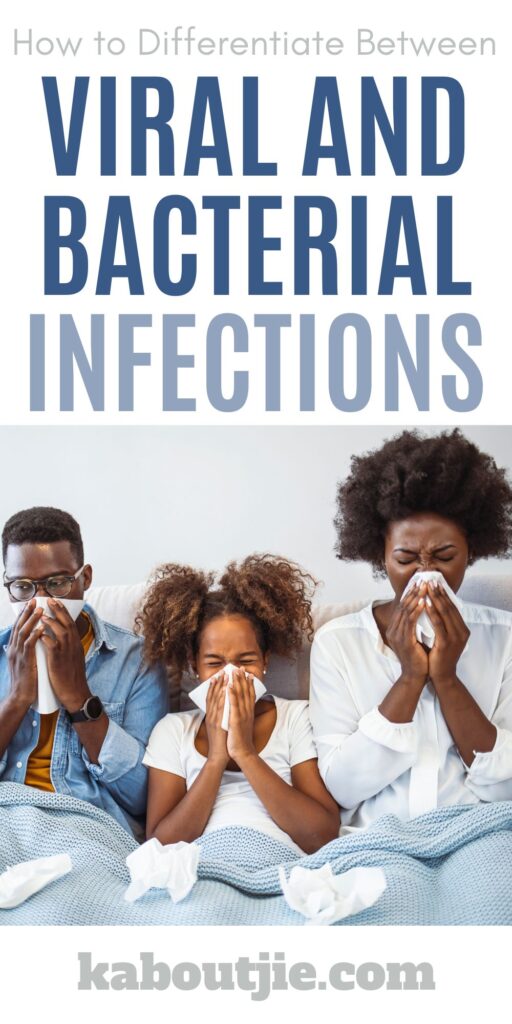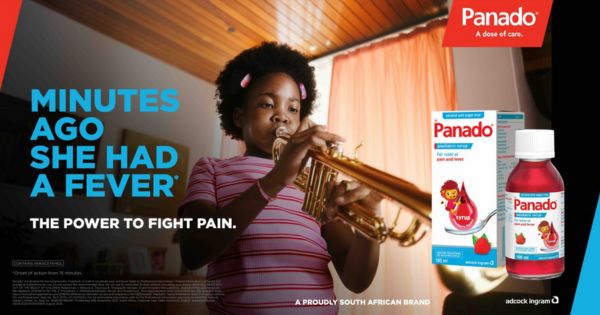Whether you’re battling the flu or dealing with a stubborn sore throat, understanding whether a viral or bacterial infection is at play can help you get the right treatment. Panado® shares tips on how to distinguish between these two types of infections.

Viral Infections
Viral infections can be caused by very tiny germs1a. Some diseases that viruses may cause include the flu, the common cold, and COVID-191b. While not every person experiences a fever when they have a virus, a fever can be a sign that the body is trying to fight off the infection2a. You might experience a fever (a body temperature higher than 37.8°C), fatigue, irritability and body aches2b.
In some cases, viral infections present with upper respiratory symptoms such as a cough, sore throat and sneezing3a. For infections that rarely cause serious illness, symptoms can usually be treated at home3b and tend to bow out within a few days to two weeks3c. Prevention is key to avoiding viral infections. Viral infections can spread through tiny droplets when someone coughs, sneezes, talks, or even through direct contact like touching surfaces or objects that have the virus on them and then touching our mouth, nose and eyes1c.
To stay healthy, wash your hands often, pay attention to food safety and try to avoid close contact with anyone who’s feeling under the weather1d. Vaccines are also a great way to reduce the risk and severity of some viral infections, keeping you and your loved ones protected1e.
Remember, antibiotics won’t help here (they only work on bacterial infections)4a, so for less serious viral infections, stick to symptom relief with rest, fluids, and medications that help with fevers2c & 3.
Bacterial Infections
Bacteria are single-celled organisms that can multiply quickly5a. They’re all around us – in soil, water, and even on surfaces in our homes and workplaces. In fact, there are millions of bacteria living on your skin and inside your body5b. Most of these bacteria aren’t harmful; many are actually beneficial. They help you digest food and fend off other harmful bacteria.
However, even these helpful bacteria can cause problems if they end up in places they shouldn’t be5c.
Bacterial infections occur when harmful bacteria enter your body, multiply, and release toxins5d. These infections can affect various parts of your body, including your skin, lungs, brain, and blood.5e Common bacterial infections include ear infections, urinary tract infections (UTIs), food poisoning and skin infections.5f Bacterial infections can spread in several ways, such as direct or indirect contact, droplets from a sneeze or cough, bug bites, or consuming contaminated food or water5g.
Symptoms vary depending on the type of infection but often include fever, chills, fatigue, and headaches5h. The good news is that some bacterial infections clear up on their own, and for those more stubborn ones, antibiotics can treat them5i. Taking antibiotics as prescribed ensures that the bacteria are completely eradicated and helps prevent antibiotic resistance4b.
When To Seek Medical Attention
If you find yourself still running a fever after three days despite home treatment, it’s time to consult with your doctor6a. The same goes if your temperature exceeds 40°C6b, or if you experience uncontrollable shivering, teeth chattering, feel confused, have a severe headache that doesn’t improve with painkillers6c, or feel like you’re getting worse instead of better6d. Unusual symptoms like hallucinations, vomiting, neck stiffness, skin rash, rapid heart rate, chills, or muscle spasms are also red flags6e. And definitely reach out to your doctor if you’ve recently travelled overseas6f. Your health is important, so always err on the side of caution!

How Panado® Can Help
Whether you’re fighting a virus or bacterial infection, some general home care tips include staying hydrated, getting plenty of rest2c &a 3, and use medications like Panado® to assist in reducing fever and alleviating pain.
The range includes Panado® Capsules7, Pando ® Tablets8 and Panado® Effervescent Tablets9 which are ideal for those that struggle with taking capsules or or tablets.
Panado® products are available from Baby City, Pick n Pay, Checkers including Hypers, Shoprite, Clicks, Dis-Chem and Independent Pharmacies. For more information, visit https://panado.co.za/ and join the conversations on Facebook.

 Kaboutjie SA Mommy Blogs by Lynne Huysamen
Kaboutjie SA Mommy Blogs by Lynne Huysamen




